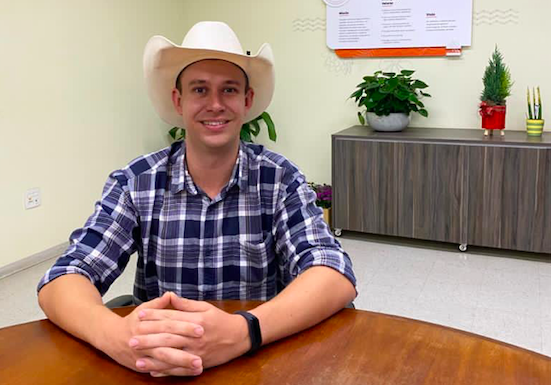When I started working for my dad’s flower company, I would always accompany him to the meetings at the cooperative that he was a member of. And it always struck me how few young people would come to those meetings. In 2010, the Cooperative Council, which is concerned with the continuity of Veiling Holambra, launched a project called ‘JovemCoop’. The aim was to get young people more involved and to get them take part in discussions about cooperative matters. Initially, around 15 people aged 18 to 35 joined the group.
These young people would meet to discuss the cooperative principles as well as our own cooperative. The group has expanded over the years. It was restructured in 2015, and the name was changed into ‘Geração Cooperativista’. In this new format, the group continues to debate about the cooperative, as well as current flower industry themes and business topics like digital developments, marketing and strategic planning.
Two other youth groups
In 2019, the group started to exchange ideas with young people from other agricultural cooperatives across Brazil. They also visited some cooperatives in the Netherlands. In the beginning of 2020, our cooperative organised a three-day event for our young members. During this event they explored practical solutions for some of the cooperative’s departments.

More and more young members are participating in events these days. Many of them are already playing an active role within the Cooperative Council. The group consists of around 60 young entrepreneurs now, and we’re starting two other youth groups. One for children from 7 to 12 years old and one for teens from 13 to 17 year old. To teach them the principles of the cooperative and to show them how we work.
Negative environment
I remember someone told me once about a boy who grew up listening to his dad complaining about the cooperative at home day in, day out. Because of this, he decided not to follow into his parents’ footsteps. After all, who would want to work in such a negative environment? It is completely normal that there are problems within a cooperative, at work and in our lives. But what children see and hear at home can determine whether they will or won’t take over the family business.
The same thing applies to the cooperative itself. If young people can’t see the value of it and aren’t a part of it, the cooperative will probably no longer exist in a few years’ time.
I have seen with my own eyes how important projects with young people are for the long-term development of the cooperative and how they can kindle young people’s interest for matters relating to the cooperative.
Jean Ferreira,
Flora Beijo, Brazil
Click here to read more blogs from Jean.







